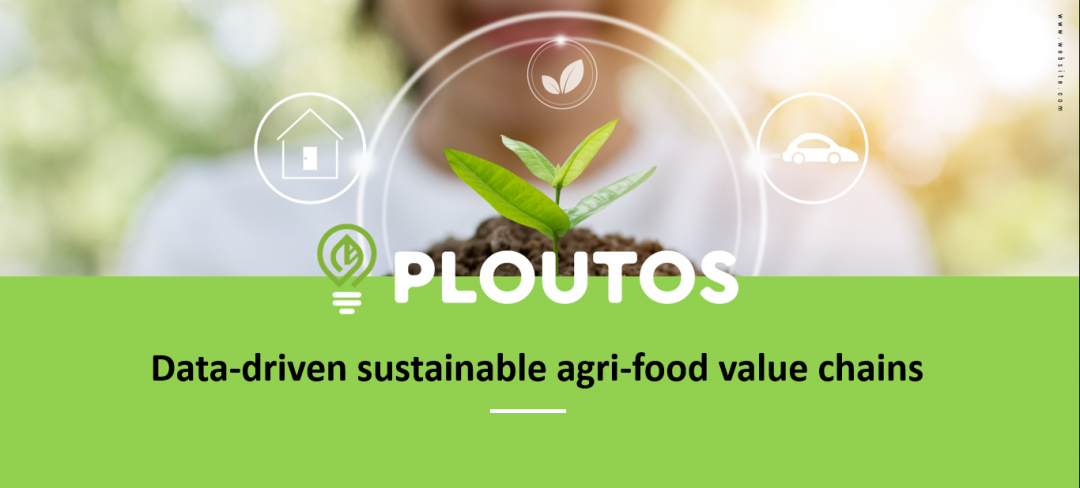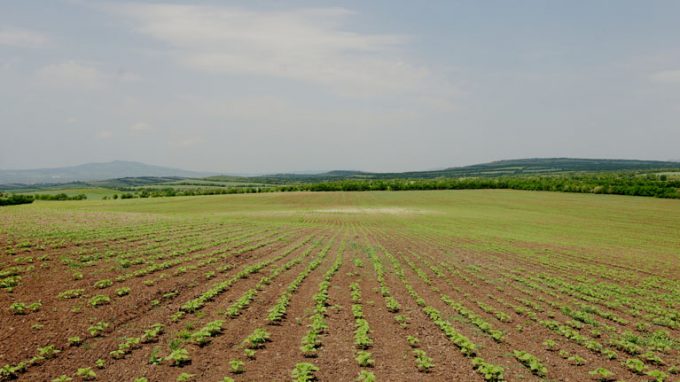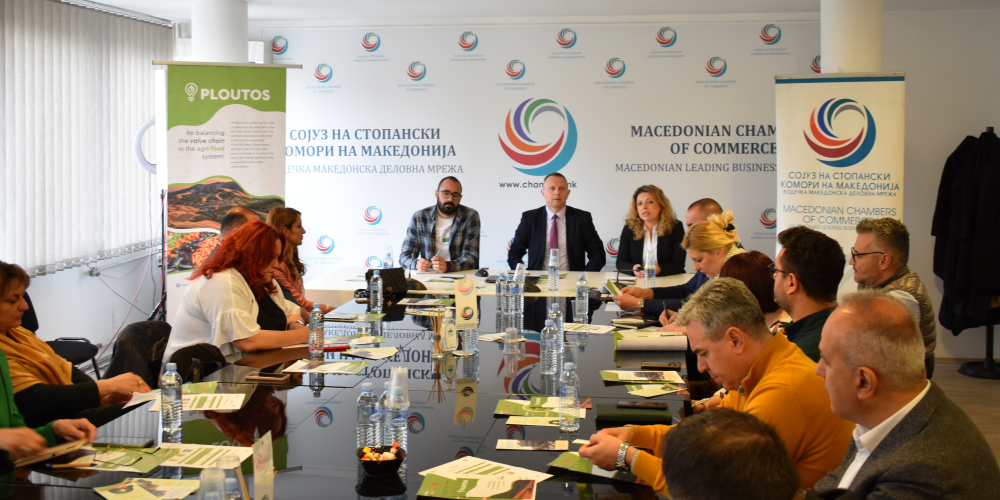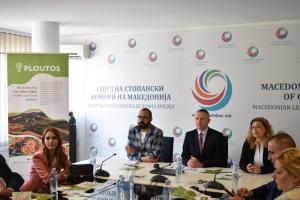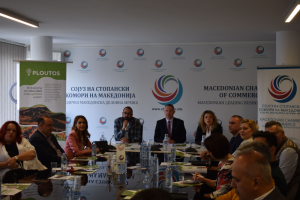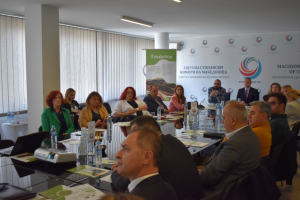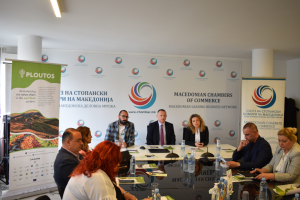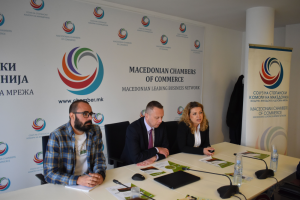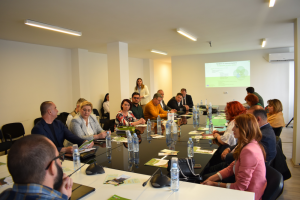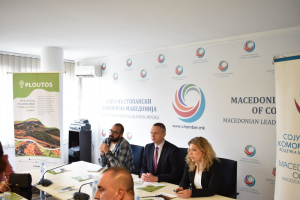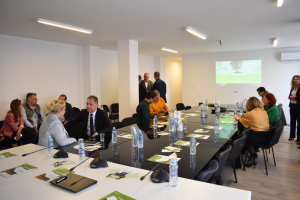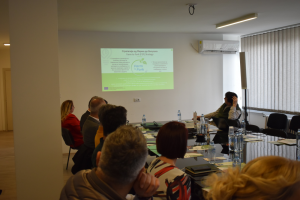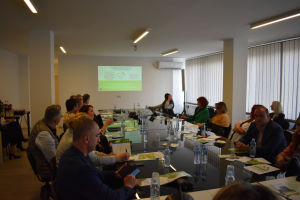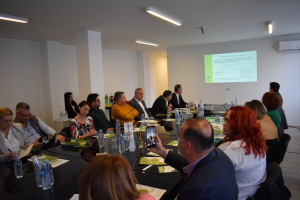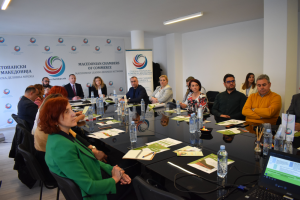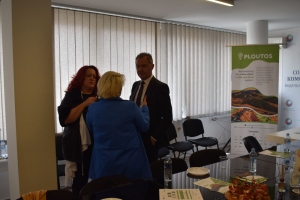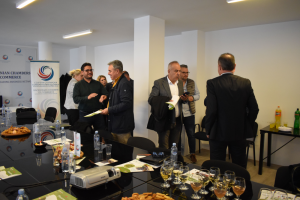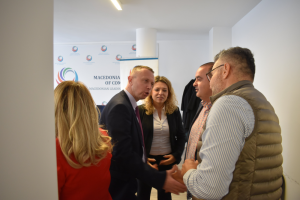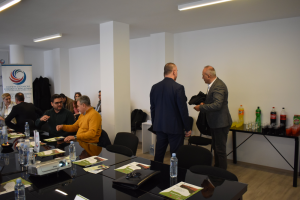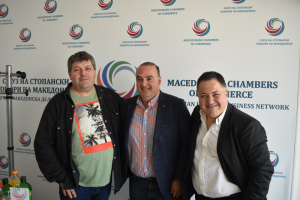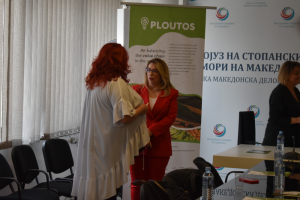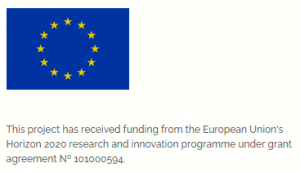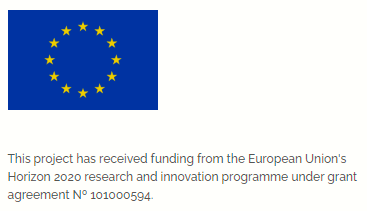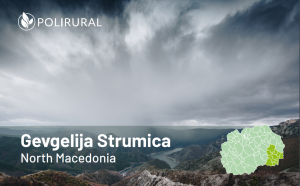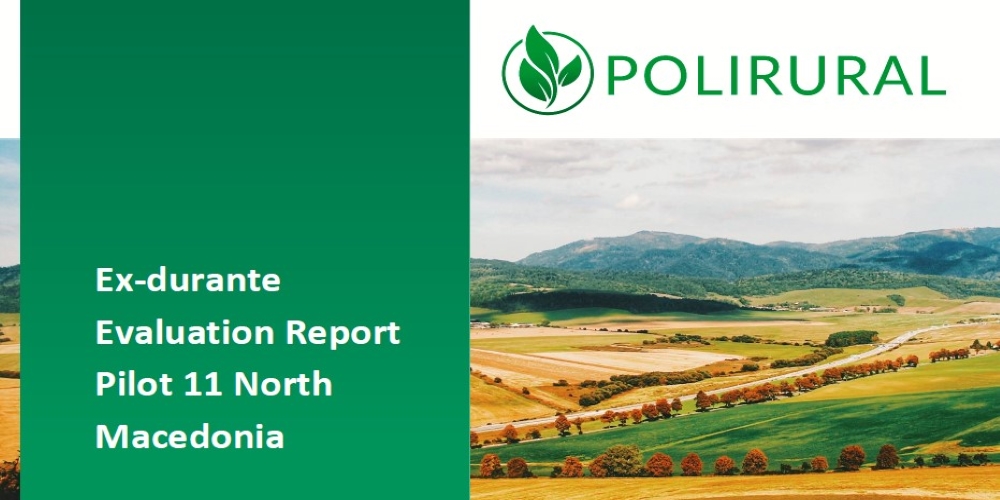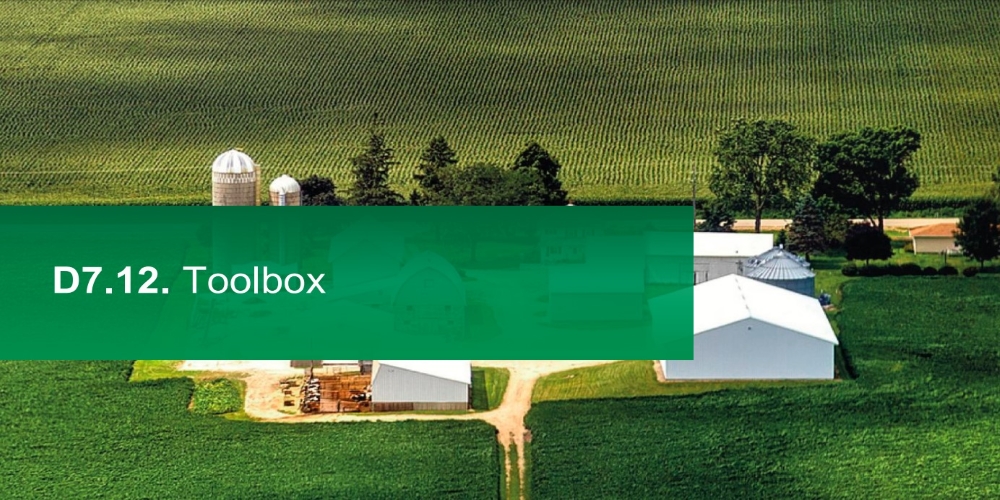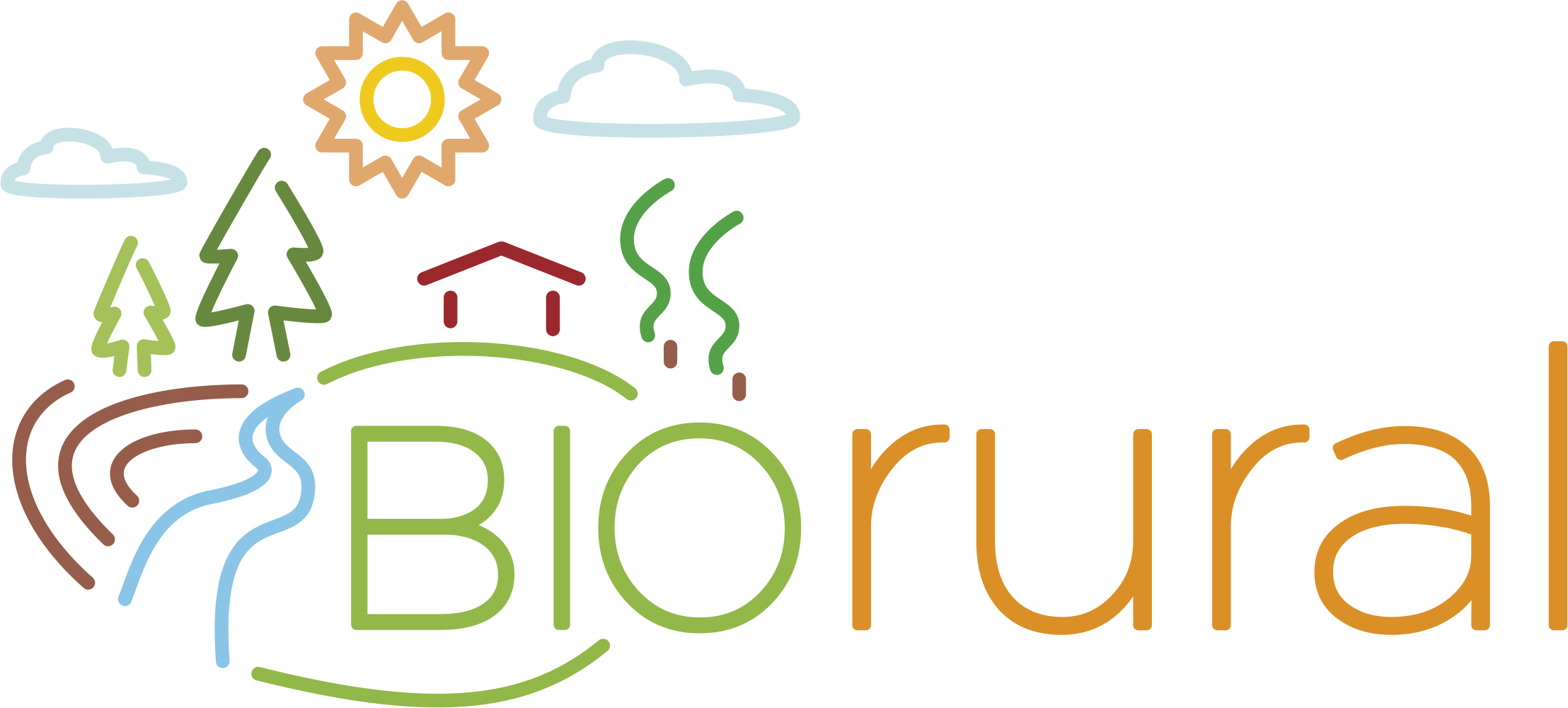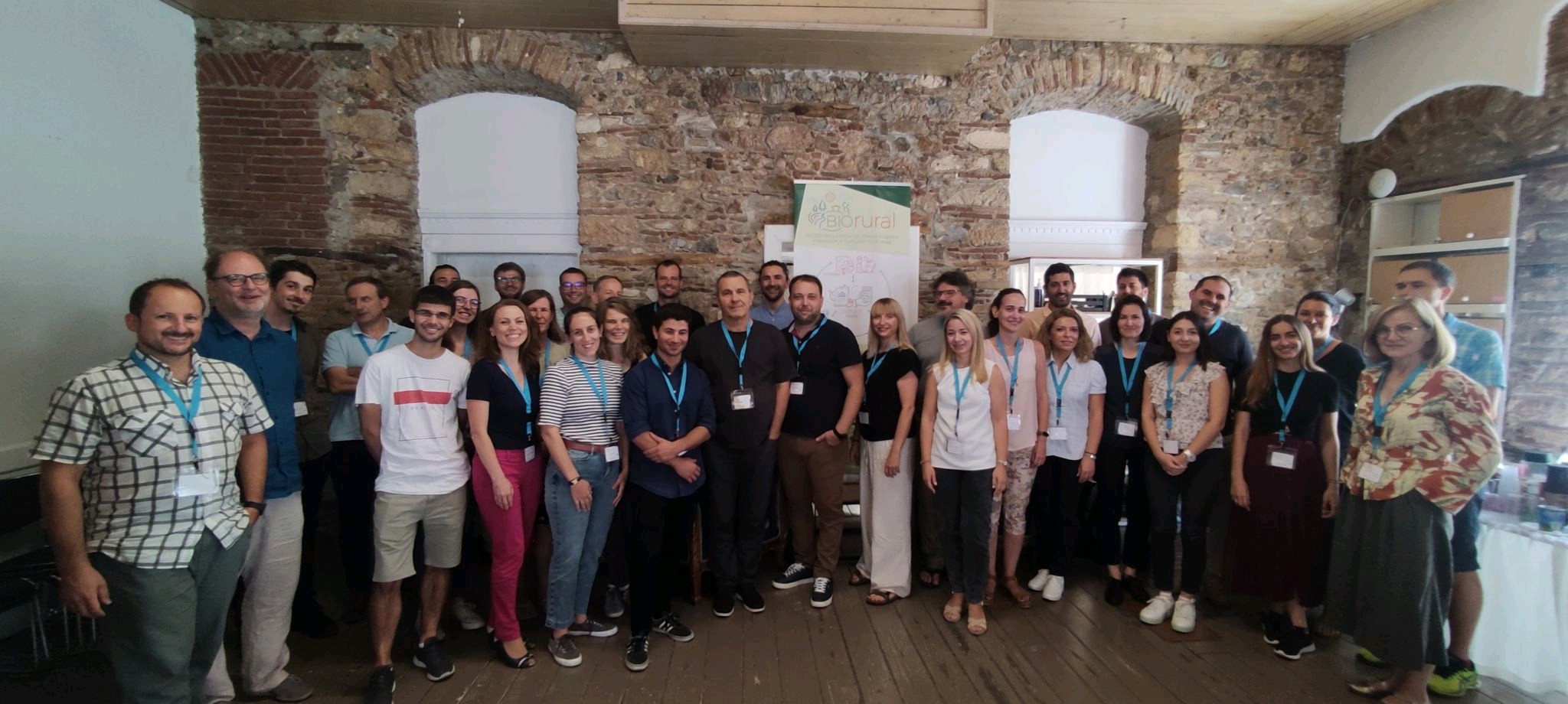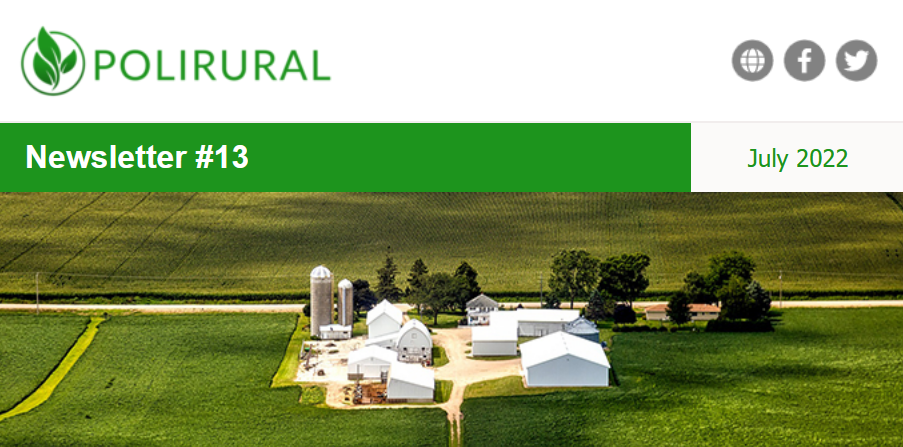Green Growth Platform in collaboration with Macedonian Chambers of Commerce organized a stakeholders’ event on the 11th of April 2023. Ploutos project goals and the social, economic and environmental benefits of the SIP9 FoodSHare platform for redistribution of surplus food were presented in front of members from different chambers, agro-business sector (producers, distributors, retailers), and representatives from the universities. The president, Mr. Trajan Angeloski and all vice-presidents from the Macedonian Chambers of Commerce expressed their support for the project activities in North Macedonia.
FoodSHare web platform facilitates the process of donating surplus food, efficiently connecting food donors with humanitarian organizations.
The FoodSHare milestones and results were highlighted with proactive engagment from the participants. The important issues of excess food, food loss and food waste were initiated, sparking valuable discussions and insights. The need of tax incentives and adequate regulation for food donations were especially pointed with a joint agreement that a systematic approach to properly manage these issues in the country is very important. Participants demonstrated active interest for the project activities, sharing their views and providing thoughtful pointers for future reference and involvement.
The event served as a platform for networking, collaboration, knowledge sharing, and disseminating results with key stakeholders from the agro-food sector, policy makers, researchers and other organizations, thus increasing the impact of the Ploutos project.

